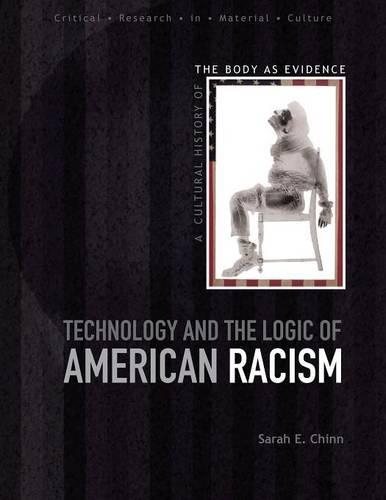
Technology and the Logic of American Racism: A Cultural History of the Body as Evidence
(Paperback)
Publishing Details
Technology and the Logic of American Racism: A Cultural History of the Body as Evidence
By (Author) Sarah E. Chinn
Bloomsbury Publishing PLC
Continuum International Publishing Group Ltd.
1st September 2000
United Kingdom
Classifications
Tertiary Education
Non Fiction
Ethnic studies / Ethnicity
Anthropology
Biotechnology
Cultural studies
Racism and racial discrimination / Anti-racism
305.800973
Physical Properties
Paperback
256
430g
Description
In this book, Sarah E. Chinn pulls together what seems to be opposite discourses--the information-driven languages of law and medicine and the subjective logics of racism--to examine how racial identity has been constructed in the United States over the past century. She examines a range of primary social case studies such as the American Red Cross' lamentable decision to segregate the blood of black and white donors during World War II, and its ramifications for American culture, and more recent examples that reveal the racist nature of criminology, such as the recent trial of O.J. Simpson. Among several key American literary texts, she looks at Mark Twain's Pudd'nhead Wilson, a novel whose plot turns on issues of racial identity and which was written at a time when scientific and popular interest in evidence of the body, such as fingerprinting, was at a peak.
Reviews
"Technology and The Logic of American Racism is important not only for its analysis of racism in the US but also for its exploration of the relationships among the languages of science, law, literature and popular journalism. Chinn's work shows that students of the humanities have a significant contribution to make to the study of the impact of historical and contemporary scientific developments on the shape of US culture"--Priscilla Wald, Duke University
"Lucid, eloquent, well-researched, and thoughtful. Chinn provides astute commentary on novels by Twain, Larsen, Thurman, Okada, and Hazlip and provocative analysis of palmistry, the 1924 Rhinelander case, the segregation of the national blood supply by race during the 1940s, black responses to rhetoric that linked blood and citizenship during WWII, and the recent Sally Hemmings controversy. But Chinn's study goes far beyond these examples, providing some of the clearest thinking available on the relationship between bodies and culture. The argument is never reductive. With impressive grace, the author manages both to reveal how bodies have been made to testify...and to be conscious of 'the gingerliness, respect, strength, edginess, and tenderness with which we should approach our own bodies and the bodies of others, whether in words, concepts, or touch highly recommended for all academic collections." --Choice, September 2001
Author Bio
Sarah E. Chinn is Director of the Women's Studies Program and assistant professor of English at Randolph-Macon College in Ashland, Virginia.
